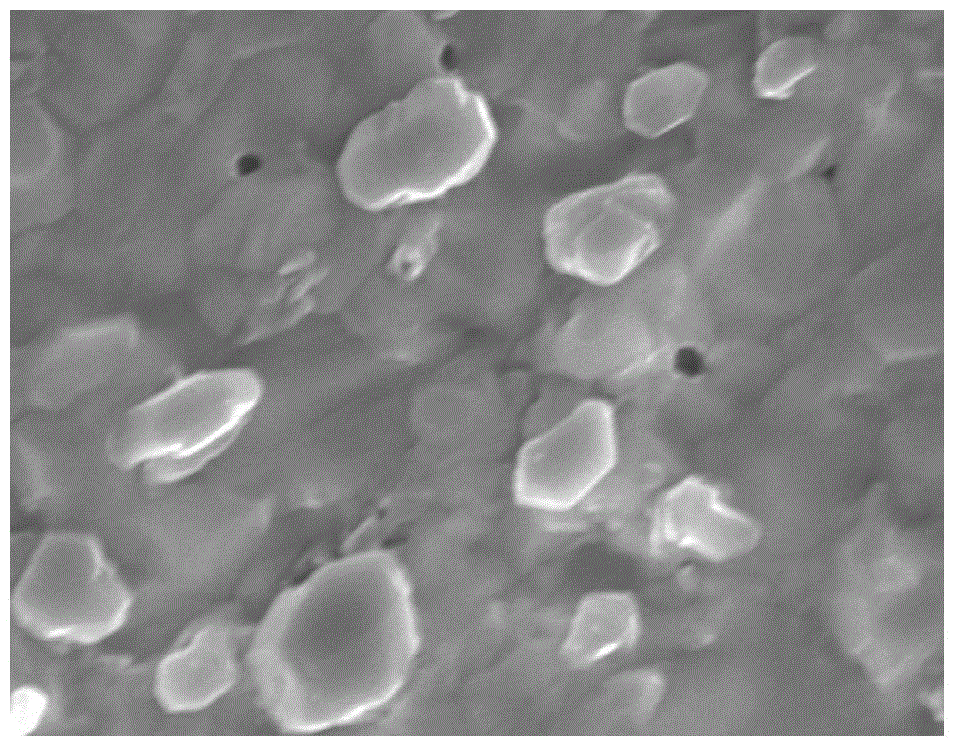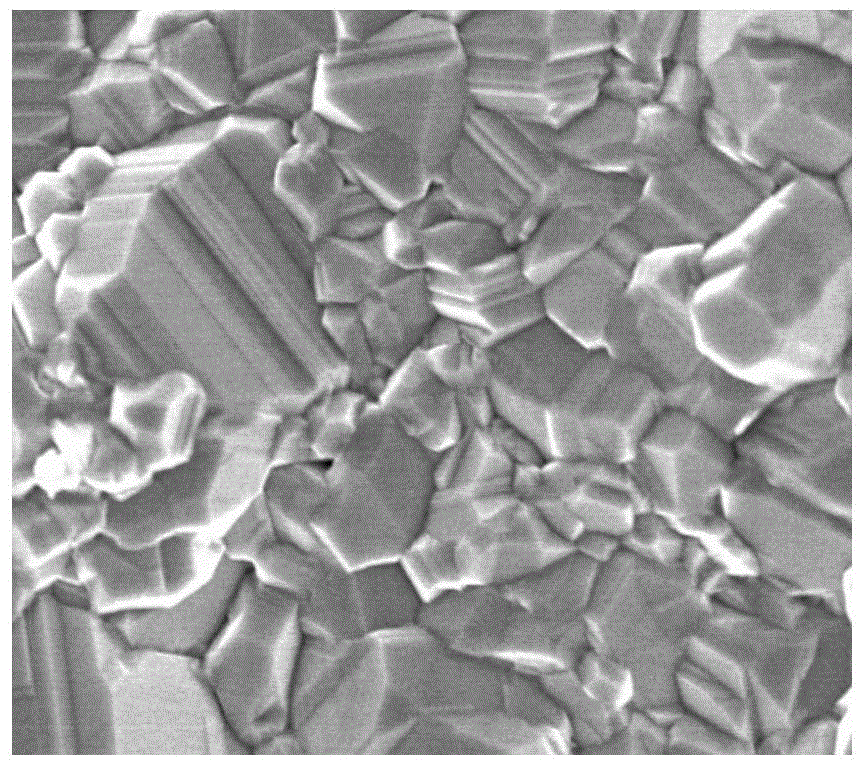Electrochemical treatment method for modifying the surface properties of copper-zinc-tin-sulfur thin-film solar cells absorber layer
A thin-film solar cell, copper-zinc-tin-sulfur technology, applied in the field of solar cells, can solve the problems of serious environmental pollution and high cost, and achieve the effects of environmental friendliness, low cost and short processing time
- Summary
- Abstract
- Description
- Claims
- Application Information
AI Technical Summary
Problems solved by technology
Method used
Image
Examples
Embodiment 1
[0042] Example 1 This example is an electrochemical method to modify the surface of copper-zinc-tin-sulfur film
[0043] Metal Mo with a thickness of 1 μm is deposited on the soda-lime glass substrate as a back electrode, and a copper-zinc-tin-sulfur thin film with a thickness of 1-2 μm is deposited on the Mo layer 4 by electrochemical deposition, which is a prefabricated layer.
[0044] Step (1): The copper-zinc-tin-sulfur thin film material is selenized in a constant temperature tubular annealing furnace, and then placed on the electrochemical workstation, only the substrate 3 and the Mo4 back electrode are connected to the working electrode of the electrochemical workstation 1; Soak in ethanol for 1-2 minutes, remove surface particles and impurities, and blow dry with high-purity nitrogen;
[0045] Step (2) Prepare treatment solution 7. The treatment solution is a mixed solution of zinc sulfate, sulfuric acid and deionized water, and the pH value of the treatment solution ...
Embodiment 2
[0048] Example 2 This example is an electrochemical method to modify the surface of copper-zinc-tin-sulfur film
[0049] Metal Mo with a thickness of 500nm is deposited on a molybdenum foil substrate with a thickness of 100 μm as the back electrode, and a copper-zinc-tin-sulfur film with a thickness of 1-2 μm is deposited on the Mo layer 4 by electrochemical deposition. This layer of film is prefabricated layer.
[0050] Step (1): The copper-zinc-tin-sulfur thin film material is selenized in a constant temperature tubular annealing furnace, and then placed on the electrochemical workstation, only the substrate 3 and the Mo4 back electrode are connected to the working electrode of the electrochemical workstation 1; Soak in ethanol for 1-2 minutes, remove surface particles and impurities, and blow dry with high-purity nitrogen;
[0051] Step (2): Prepare treatment solution 7. The treatment solution is a mixed solution of sodium nitrate, nitric acid and deionized water, and the...
Embodiment 3
[0054] Example 3 This example is an electrochemical method to modify the surface of copper-zinc-tin-sulfur film
[0055] Metal Mo with a thickness of 1 μm is deposited on the soda-lime glass substrate as a back electrode, and a copper-zinc-tin-sulfur thin film with a thickness of 1-2 μm is deposited on the Mo layer 4 by electrochemical deposition, which is a prefabricated layer.
[0056] Step (1): The copper-zinc-tin-sulfur thin film material is selenized in a constant temperature tubular annealing furnace, and then placed on the electrochemical workstation, only the substrate 3 and the Mo4 back electrode are connected to the working electrode of the electrochemical workstation 1; Soak in ethanol for 1-2 minutes, remove surface particles and impurities, and blow dry with high-purity nitrogen;
[0057] Step (2) Prepare treatment solution 7. The treatment solution is a mixed solution of sodium chloride, hydrochloric acid and deionized water, and the pH value of the treatment so...
PUM
 Login to View More
Login to View More Abstract
Description
Claims
Application Information
 Login to View More
Login to View More - R&D
- Intellectual Property
- Life Sciences
- Materials
- Tech Scout
- Unparalleled Data Quality
- Higher Quality Content
- 60% Fewer Hallucinations
Browse by: Latest US Patents, China's latest patents, Technical Efficacy Thesaurus, Application Domain, Technology Topic, Popular Technical Reports.
© 2025 PatSnap. All rights reserved.Legal|Privacy policy|Modern Slavery Act Transparency Statement|Sitemap|About US| Contact US: help@patsnap.com



